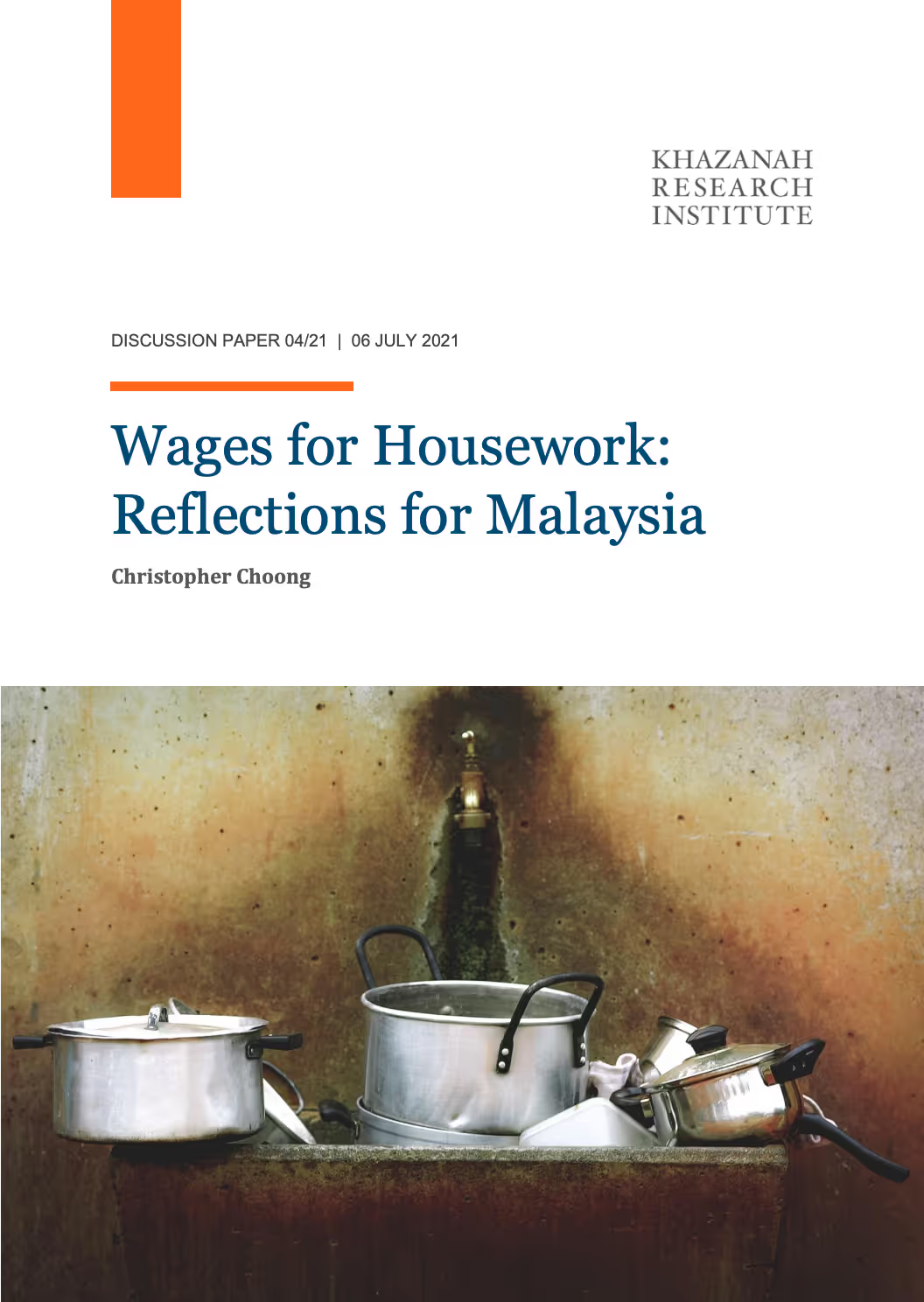
- The International Feminist Collective launched the Wages for Housework campaign in the 1970s with the proposition that the government should pay a weekly wage to women for their social reproductive labour in the domestic sphere (or housework). “They say it is love, we say it is unwaged work”, quipped Silvia Federici memorably, a key proponent of the Wages for Housework campaign. - The wages for housework debate locates unpaid care and gender inequality within the broader structures and processes of capitalism in explaining how the capitalist economy renders feminised domestic labour invisible and exploitable. Against this backdrop, paying for housework was derived as a theoretically informed proposition to confer symbolic recognition to housework as work, and compel an end to the essentialising features of women’s domestic labour and the nuclear family. - While the proposal of a weekly wage for housework did not take off, the debate surrounding this campaign offers rich theoretical and policy insights into the contemporary global crisis of care. The contemporary global crisis of care is characterised by the transition from industrial capitalism to neoliberal capitalism, where women have been increasingly mobilised to participate in the expanding service-oriented economy. At the same time, housework has been outsourced to the market, to newly commodified care sectors which are feminised and precarious but remains unaffordable to large segments of the population. - Not spared from the global crisis of care, Malaysia’s policy approach in addressing unpaid care and gender inequality can be described as a “dual-earner family model”, where there is a strong focus on the productive sphere by getting both women and men to work and become income earners. Unpaid care is constructed as a constraint, pulling women back from more “productive” work, hence policies are needed to overcome this constraint. - However, lessons from the wages for housework debate suggest that the dual-earner family model may not only be inadequate but theoretically flawed. While paying for housework alone is insufficient to address structural invisibility and exploitation in the care economy, three recommendations, drawn from the broader theoretical underpinnings of wages for housework, are put forward: (i) expand the role of the state in the face of an emerging care crisis; (ii) put in place a policy mix to support community care work; and (iii) integrate care migration into the policy architecture. These broad recommendations are discussed reflexively alongside the more specific proposals in the Time to Care report published by Khazanah Research Institute in 2019.















